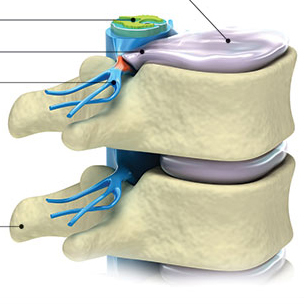![]() Causes of knee pain | Understanding symptoms | Nonsurgical treatments | Surgical options | Knee prevention
Causes of knee pain | Understanding symptoms | Nonsurgical treatments | Surgical options | Knee prevention
Understanding Knee symptoms
What is covered in the understanding symptoms section?
- Indicators of a serious problem
- Misleading symptoms
- How to choose a doctor
- How a doctor diagnoses knee problems
What do symptoms mean? Can you self diagnose your knee problem? How can you decide if you need to see a doctor for your knee pain? Here is some helpful information.
Indicators of a serious problem
- The pain is very intense
- The pain comes on very strong and suddenly
- You hear a pop from your knee area
Misleading symptoms
Sounds:
If you hear grinding in your knee as you flex and extend the leg, you may think you have a knee problem, but in some cases that grinding sound may be normal, especially if there is not associated pain or discomfort. Noises, when accompanied by pain, should always be taken seriously.
You should have a knee specialist check them out to be sure you are not doing further damage to the knee joint. A loud "pop" for example that comes from an abrupt physical movement, during basketball or tennis, can signal a torn anterior cruciate ligament. There may also be a feeling of instability or nausea. A torn ACL is very serious and needs the attention of a knee specialist promptly.
* Pain:
Some serious problems are not even painful at first. Generally speaking, the immediate onset of pain is a sign that something serious is wrong and you need to see a knee expert. But also be aware that sometimes serious problems can develop that DO NOT produce excruciating pain.
*Note:The more of these symptoms you exhibit and the more intense they are, the worse the problem could be.
How to choose a doctor
Board-Certification
A physician who is board-certified generally has a few years experience past his or her residency and has taken an exam in his or her specialty. A younger physician coming out of a fellowship may be 'board-eligible' in that they will soon take the exam to be board-certified. However, as a rule of thumb, if a doctor is several years out of residency this may be something to be concerned about. Most physicians understand the importance of board-certification. If a physician is unable to "pass his boards" that can be a bad signal.
What is the doctor's reputation? How specialized is the doctor? Is the doctor fellowship-trained?
As in anything else in life, "practice makes perfect" when it comes to medicine. A doctor who specializes in a certain problem, naturally has more experience in the field than a doctor who is a generalist. Research has shown that doctors who specialize, and see a high volume of patients with a specific problem have better outcomes.
Fellowship training is the highest level of training available for a doctor in any given subspecialty of medicine. For instance, a doctor finishes medical school, then goes on to do an internship and a residency. A fellowship is an optional, additional level of training that takes his or her expertise one step higher. Fellowship training exposes the doctor to the most complex medical cases and advanced treatments for medicine in their specialty area.
Know who your doctor is
To find out how qualified your physician is, you may contact the Board of Medical Examiners in your state. This will offer credentials on any type of physician - not just orthopaedic surgeons.
Go the extra mile for the best health care
Generally speaking, the best super specialists choose to practice in larger cities. If you live in a rural area, you will need to travel to see the best specialist.
How a doctor diagnoses knee problems
When a patient visits a knee specialist to help diagnose a knee problem, there are three parts to the examination; the medical history, the physical examination, and diagnostic imaging.
During the medical history, the knee surgeon will try to find out if you have developed your problem through heredity, through lifestyle habits or through a sudden sports injury. This will give the physician the best idea of how to find out exactly what is wrong, and then suggest proper treatment of the injury. You should indicate to your doctor if you have been using steroids since they can cause joint inflammation. Lyme Disease from the deer tick and rheumatoid arthritis can also trigger joint inflammation, for instance.
Following the medical history, your doctor will give a physical examination to see if he can hear or feel what is wrong. This portion of the exam is somewhat like a carpenter trying to find out why a hinge on a door is squeaking or is not properly aligned by opening and closing the door a few times to listen to what is going on. This will show the doctor which tests he or she should perform to find out the cause of your pain.
Next, the physician may have an MRI or x-ray image taken of your knee. An x-ray often times does not provide the clarity needed to see precisely what is wrong. In these instances, an MRI or CT-Scan is used. X-rays, for example, only show bones. MRI and CT-scans show soft tissues.








